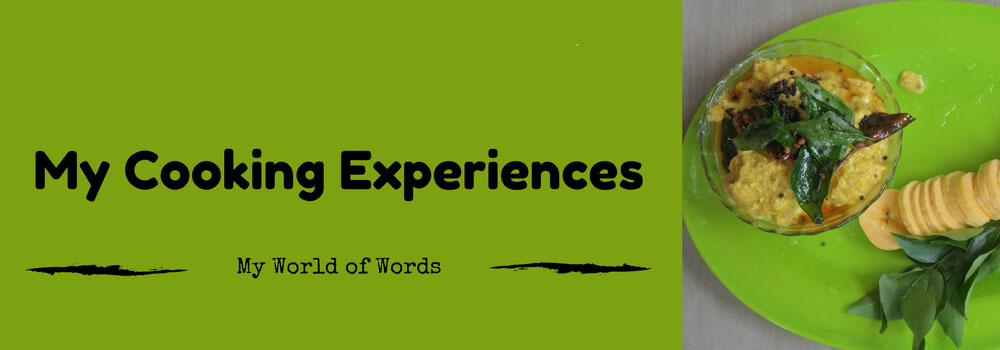A journey through Malayalam proverbs about ‘Parenting’ theories
Many proverbs, told centuries back, may not be relevant in present times. As it’s told, “Pazhanchollil Pathirilla”, we can look into many proverbs and find them related to modern era too. During old times, children were punished severely, and canned too, and some of the proverbs were written so. Translation of one proverb goes like this – Like a hook needed to tame elephant, a stick is sufficient to make a kid disciplined. “Vadi cheyyum upakaram annan-thambi cheyyilla” – is another proverb, which literally translations as the help provided by a stick can’t be done by elder brother or younger brother. Time has changed, and so are parenting techniques too.
Those days, parents were the sole decision makers and guardians, authorized to take decisions about their children without even considering the wishes of kid, even allowed to punish them with the aid of sticks. Kids were severely punished by teachers too, and nobody was there to question them. In modern times, parents are giving respect to their children, giving importance to their wishes & opinions and considering them as friends. A friendly approach is seen in most families now, and the necessity of quality time for kids relevant now.
Now instead of caning kids, parents have resorted to other means, to make their kids understand and avoid repeating same mistakes. Not allowing him to play outdoor for a day, not allowing to see his favourite cartoon show etc are some of the positive punishments, where a kid is not punished physically. In many cases, parents punish kids in anger too. Also read: Malayalam proverbs & old sayings and their interpretations for a healthy living style.
Here are some of the parenting proverbs told by our ancestors decades and centuries ago. Here I list a few of them.
1. Chellam Peruthaal Chithalarikkum (Too much pampering may lead to destruction by termites)

In joint families of yesterdays, kids were enough for a procession or a cricket team. Some couple had more than 8 or 10 children. Women were too busy preparing food, and other house chore where electric equipment were not available those days. They didn’t even get time to count kids. Yet as the proverb says, “Kaakkaykkum Thankunj Ponkunj” (Even for crow, hers is golden kid) parents always pamper their kids, yesterday or today.
Even for cruel practices by kids like showing cruelty to elders or animals, parents may boast it as mischief. Seeing such practices some elderly person may say, this proverb, which means, if you pamper your kid too much it may lead to a destroying condition similar to destruction by termites/ant-hill. In the atomic families of present generation, such pampering is too much, and parents have turned over-protective. Such kids may easily get affected even by silly problems and negativity. It’s good to pamper your kids, but within limits. Elders realized it long time back.
2. Chodattaal Mukalattu (If root broken, top portion also broken)

What happens if root of a plant is destroyed, its stem and leaves too will wither and the plant will die. That’s exactly the case of kids too. Since childhood, kids need good experiences and corrections, so that they grow up as better citizens. Child abuses, fights at home between parents etc can influence the personality of growing kids. So, extra care is needed during the growing ages of kids, and habits cultivated during young ages will stay forever (Chottayile Sheelam Chudala Vare).
3. Adimeladichaal Ammiyum Podiyum (If you beat extra, even grindstone will be broken)

Grindstone is very hard and strong indeed. Yet if you continuously beat on it, it will break one day. That’s the case of kids too. Over punishment of your kids can give only negative impact, rather than getting positive results. Don’t break a kid’s mirror like heart. If you punish kids extra, kids may develop revenge emotion towards parents.
4. Thalayedukkumbol Thala Kondadikkanam (Use brains while punishing)

When you read, direct meaning is severe punishment for wrong doings. No. Punishment should be in proportion to the mistake committed. For small mistakes, small punishment is sufficient; For example, tearing paper of books or scribbling. But if the same thing is done to passport or other official records, punishment can be given accordingly.
5. Onnumdenkil Olakkakondadich Valarthanam (If it’s single kid, use pestle to beat & bring up)
During old days, single kid was almost rare in families. If it’s single kid, they used to be pampered too much. Pestle was most common those days in household. That’s why such a proverb. Too much pampering is bad parenting, and damage good qualities of kids too. Correct his mistakes, and punish him if necessary, and bring him up a good kid. He should never misuse your pampering and too much caring.
6. Thallu Maayum, Chollu Maayilla (Mark of caning may go, but not words)

A kid will easily forget the caning. But in anger, if you use harsh words, he won’t forget easily. Just give him some positive words like, your smile gives me happiness, I love you a lot, and see the difference.
7. Ariyaathathinu Thallu, Arinjathinu Chollu (For the unknown, caning & for the known, just advice)

Some kids have countless doubts, even for silly things. During old days, such doubts were welcomed with beatings or scolding. As per later findings, such kids are more intelligent. Try to clear their doubts and make them understand based on their age and IQ. If you don’t know the answer, just tell direct. Some parents are keen in punishing kids, but never appreciate them for their efforts or positive things. Such parenting techniques should be changed.
8. Aayiram Onginu Oradi (For 1000 warnings, single caning)

Never punish kids for their first mistake. Deal it with patience and teach him how to correct it. If he is repeating the same after many advices, small punishments can be given. Yet again, if he continues, punishment can be severe. You can also give him warning, that he will get punishment. In most cases, fearing the caning, kids won’t repeat. Once you start beating, the fear will be gone. So, take stick only if necessary, that too as last resort. Give him enough time to correct mistakes. After all everyone has flaws, and no one is perfect. Give punishments like asking him to water plants, cleaning utensils, cleaning home, not allowing to play or watch favourite cartoon etc, rather than using stick.
9. Kuttivaasi Kurach Nerathekk (Kid’s anger is for a brief period)

Sometimes kids may turn stubborn for silly things, and many of them demand many things parents can’t purchase. Kids may even resort to drama, to fulfil their wishes, and if parents obey them, it’s to continue. You should be able to limit kid’s anger for a brief period, and distract his thoughts. During old days, parents gave less attention to kids in this case. After crying for a while, the kid used to stop. In new generation, parents try to fulfil their wishes. It’s good, but never go overboard.
10. Tholethiyaal Makan Thozhan (When son reaches your shoulder height, he is your friend)

During old days, when boys reach adolescence, parents stop punishing them. But now time has changed. Since early childhood, parents have now turned friends to kids, and it’s the right method too. Communicate with them, and give importance to their opinions too. In helicopter parenting, parents turn over-protective and the destruction level is high, when they start interfering in their personal matters even after marriage.
11. Parakkamuttiyaal Kothiparappikkanam (Once grown to fly, peck them & send to fly)

Have you noticed how hen look after her chicken? After a certain age, teaching them everything, she will peck them off. After that it’s their life. Same thing can be applied in the case of humans too. There is one more proverb – Plavila Perukkaaraayal Ath Cheyyanam (If it’s the time to pick jackfruit leaves, do it). Never do everything for him, thinking he is a kid. Teach him things according to his different stages of development. Make him independent at a young age, and give him tasks to do too. Watering plants, cleaning room, washing car etc can be assigned to kids.
12. Makkale Kandum Maanpoo Kandum Mayangaruth (Never doze off seeing kids or mango flowers)
When you see your mango tree blossomed, you weave thousand dreams about mango fruits. But if a rain comes, flowers will be washed off. Same is the case of kids. Never over-expect from them or see them as fixed deposits. Set an atmosphere to groom them. Let them study and grow as good kids. If you ask kids to take responsibility of parents at old age or should give back money spent for education, they may react negatively, and it’s nothing wrong in present times too.
Let them know financial troubles of family, and different situations they need to face. Bring them up as fire rather than tender flowers. Then only in future, they can cope up with similar situations easily. Try to convert their sour/bitter experiences to sweet ones. Provide such an atmosphere for your kids.
Note: Based on a Malayalam article published in Vanitha Magazine, and all the images used here solely belong to the artist.
Read a few more articles related to Ayurvedic discipline. Here is the page link. Click on the images to read.














Recent Comments